UW Cannabis Conference

UW-Madison Cannabis Research Conference 2025
From Seed to Society: Cultivating Connections
April 22, 2025
Union South, University of Wisconsin-Madison
This event has passed. Thank you to all of our speakers, attendees and organizers for making this event a success! You can find links to the video recordings of the Welcome & Overview and Keynote sessions in the schedule below.
The 2025 UW-Madison Cannabis Conference is a dynamic, multi-disciplinary event aimed at expanding awareness, fostering knowledge exchange, and bridging gaps in cannabis research, education, and policy. The conference will bring together researchers and graduate students* across campus as well as key industry stakeholders to share updates and facilitate collaboration. Attendees will gain valuable insights into the evolving landscape of cannabis science, industry, and regulation through engaging discussions and networking opportunities.
Presentations and panel discussions will focus on four priority topic areas:
- Agriculture
- Health and Medicine
- Business and Design
- Policy and Regulation
*Undergraduate students are encouraged to register and may be able to participate depending on space/availability.
Schedule
| Session | Time | Speaker(s) | Video Recording |
|---|---|---|---|
| Arrive & Check-In (coffee and light breakfast served) | 8am-8:30am | ||
| Welcome & Overview | 8:30am-9:15am | Melissa Agard; Shelby Ellison, PhD; Glenda Gillaspy, PhD | Click to watch |
| Keynote | 9:15am – 10am | Jim Mills, PhD | Click to watch |
| Panel 1: Health & Medicine | 10am-11:30am | Moderator: Jesse Kaye, PhD Panelists: Heather Barkholtz, PhD; Micahel Chen, MD, FAAFP; Hasmeena Kathuria, MD, ATSF; Ritu Bhatnagar, MD, MPH, FASAM, DFAPA | |
| Lunch | 11:30am – 12:15pm | ||
| Panel 2: Business & Design | 12:15pm – 1:45pm | Moderator: Abram Becker Panelists: Marianne Fairbanks; Steven Kostell; Zach Popp | |
| Panel 3: Agriculture | 1:45pm – 3:15pm | Moderator: Phillip Alberti Panelists: James DeDecker, PhD; Shelby Ellison, PhD; Mike Petersen; Shannon Riha, PhD | |
| Break / Snack | 3:15pm-3:30pm | ||
| Panel 4: Policy & Regulatory | 3:30pm – 5pm | Moderator: Lucas Richert, PhD Panelists: Calyn Ostrowski; Rob Pero; Phillip Scott; Jason Tarasek | |
| Reception (at The Sett) | 5pm-6pm |
Registration
Registration is now closed.
Parking
Parking lot #80 underneath Union South or lot #17 on Engineering Drive are suggested parking solutions at Union South. Visit the Parking webpage for more information, including real-time lot availability and maps. It is recommended to arrive early, as lots fill up. Parking rates are as follows:
- $1 per 30 minutes for the first 3 hours
- $1 per hour thereafter
- $15 daytime session maximum
Questions
Please contact Shelby Ellison with any questions or comments at slrepinski@wisc.edu.
This inaugural event is presented by UW-Madison’s College of Agriculture and Life Sciences, School of Human Ecology, School of Pharmacy, Global Health Institute, and Center for Tobacco Research and Intervention.
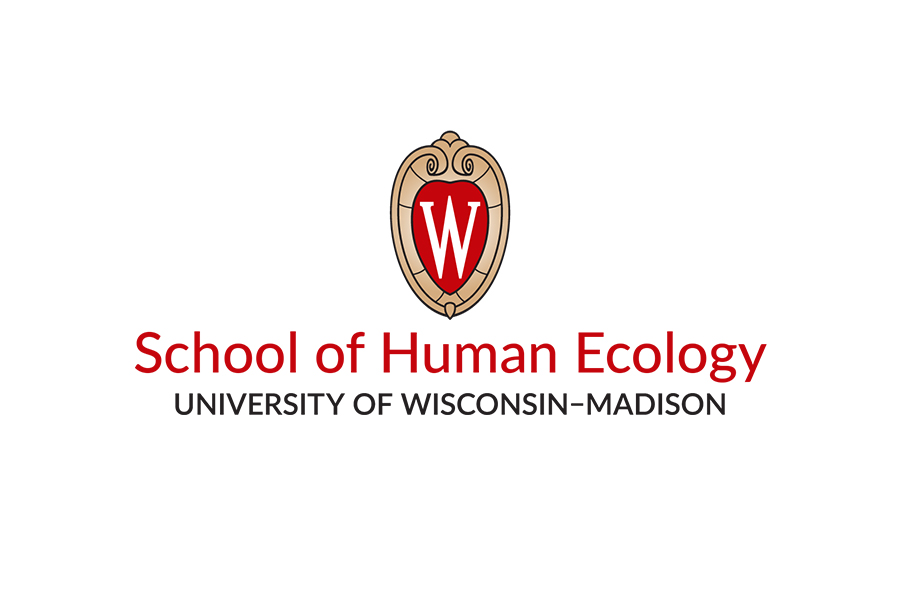
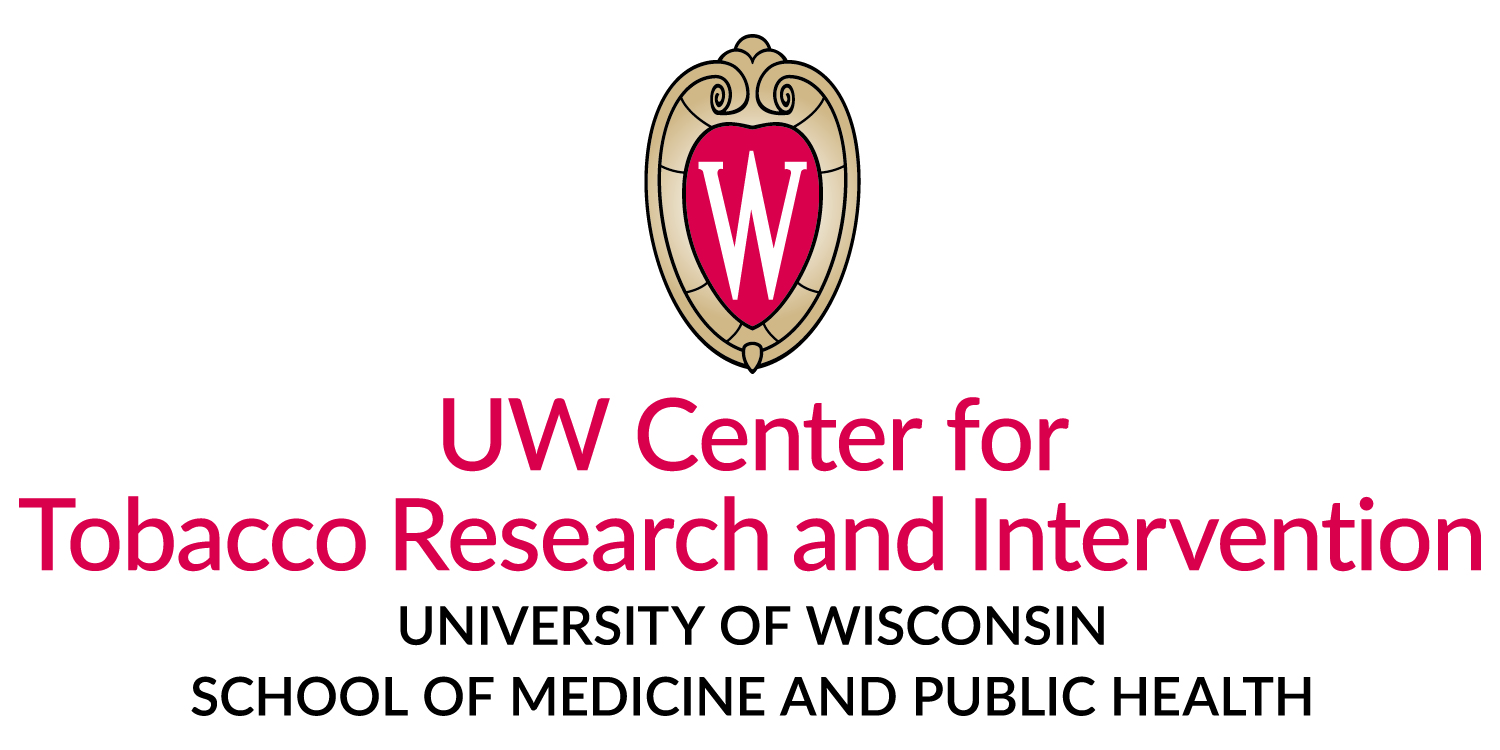
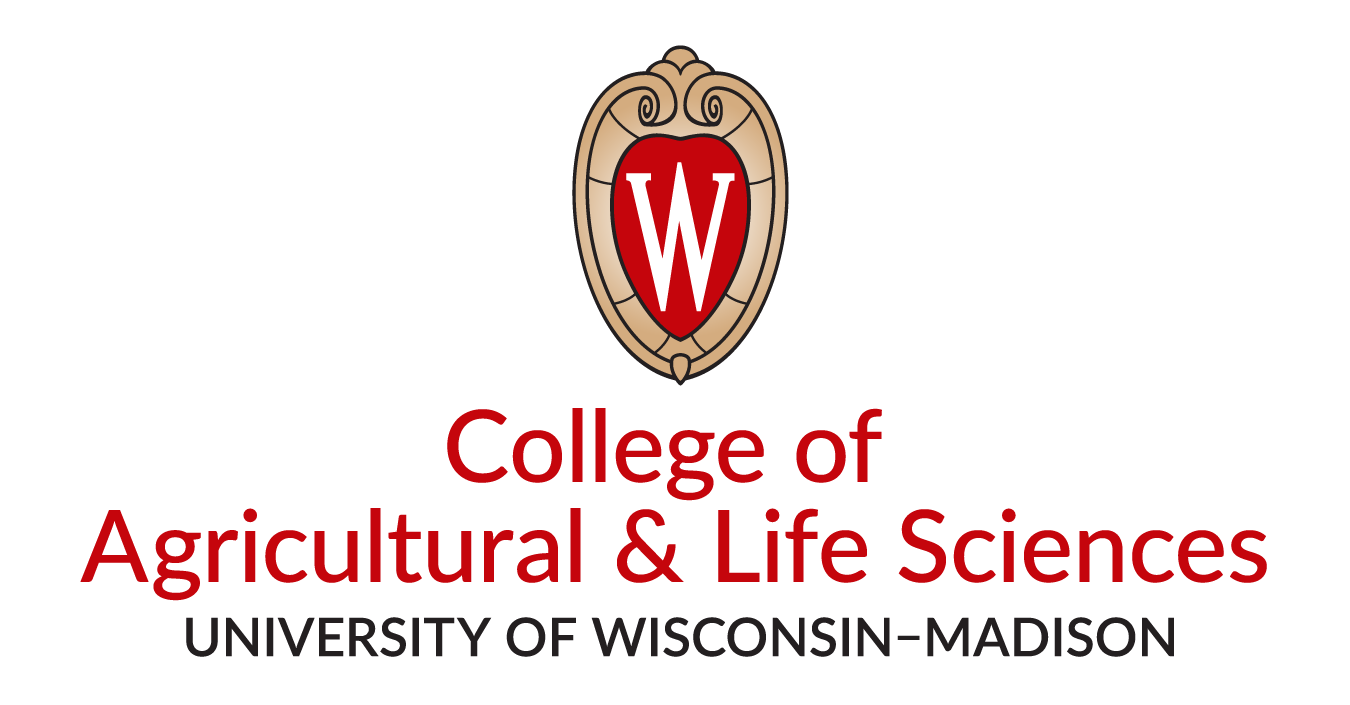


Speaker Bios
Welcome & Overview
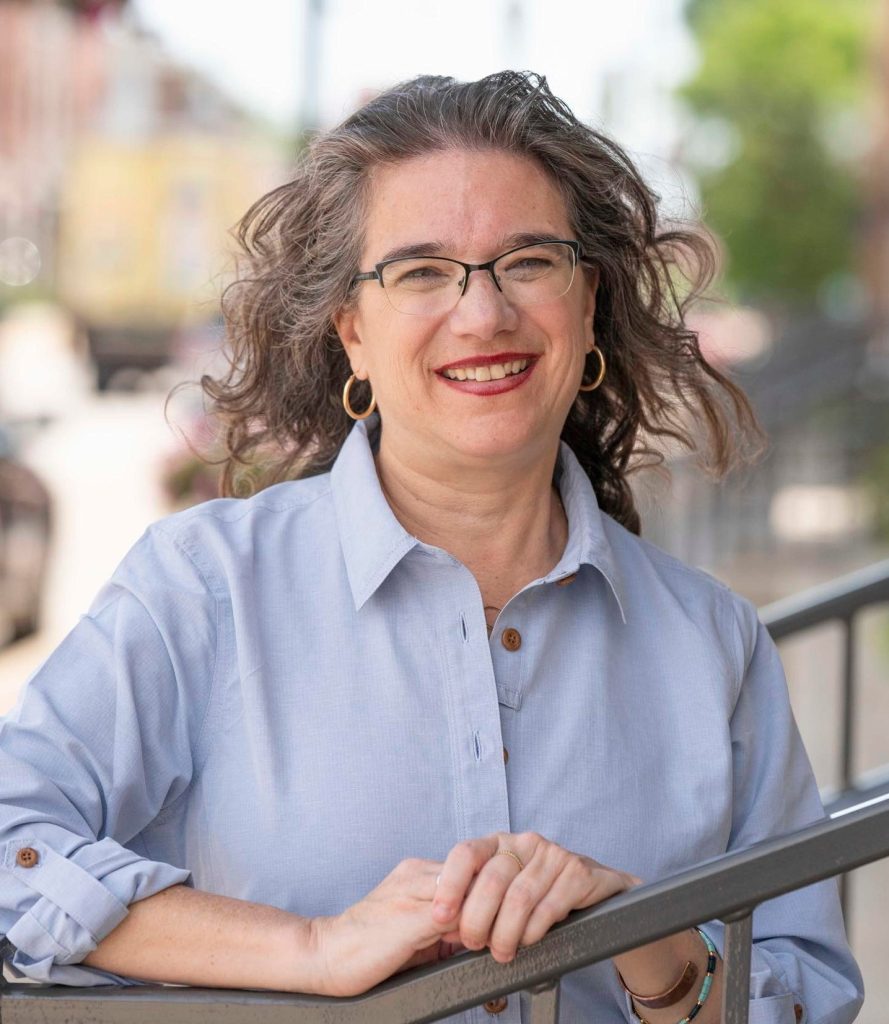
Melissa Agard
Dane County Executive
Melissa Agard is a lifelong resident of Dane County, a dedicated public servant, and a proud mother of four sons. She was elected as Dane County Executive in the November 2024 Special Election to replace County Executive Joe Parisi. Prior to her election as County Executive, Melissa served as a Dane County Supervisor, a State Representative, and a State Senator. In November 2022, her colleagues unanimously elected her as the Senate Minority Leader. Melissa graduated from the University of Wisconsin-Madison and was a small business owner prior to her time in elected office. Throughout her career, Melissa has championed issues such as affordable housing, environmental protections, public health, and workers’ rights. Her leadership is defined by a commitment to building a stronger, more inclusive community for everyone who calls Dane County home.
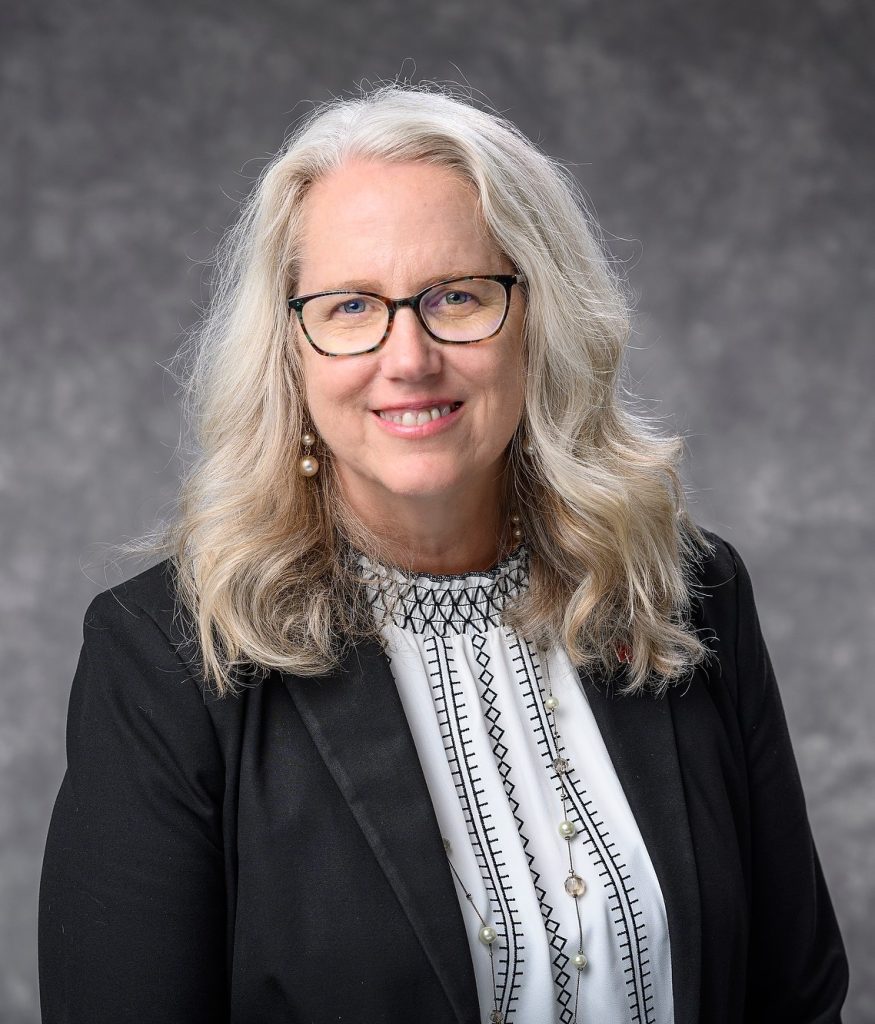
Glenda Gillaspy, PhD
Dean and Director, UW-Madison’s College of Agricultural and Life Sciences
Dr. Glenda Gillaspy became the 14th dean of UW-Madison’s College of Agricultural and Life Sciences in August 2022. Prior to that, Gillaspy was a professor of biochemistry at Virginia Tech where she served as department head since 2015.
Keynote
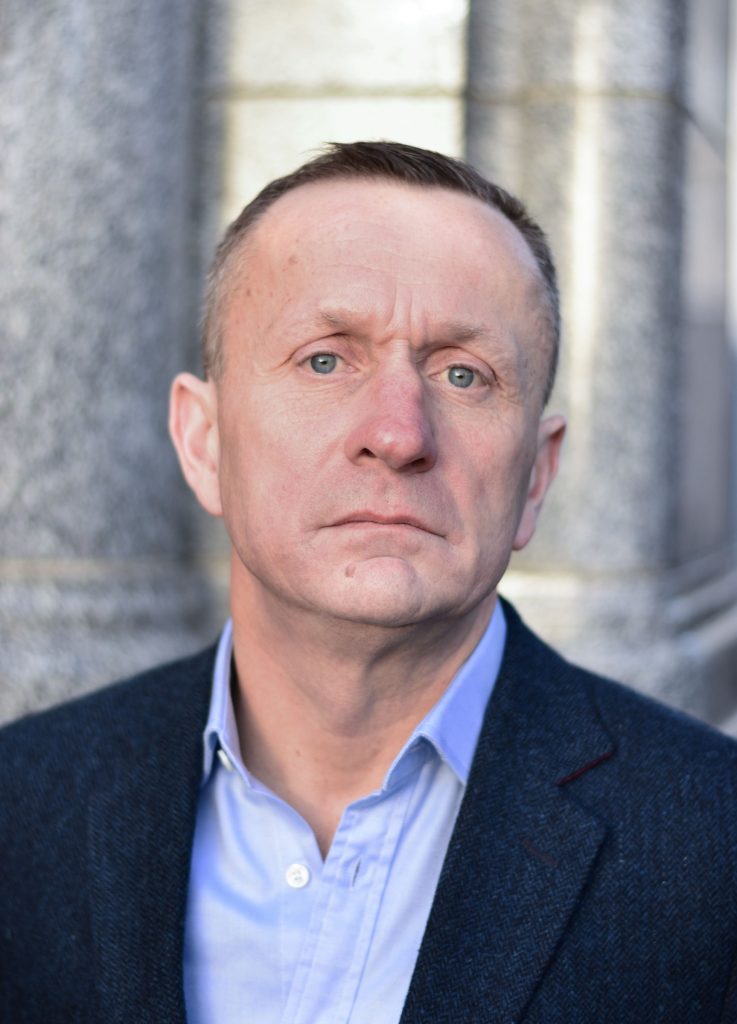
Jim Mills, PhD
Professor of History, University of Strathclyde
Resisting the Cannabis Revolution: History, pain and policy in the UK, c. 1971-2026
As a historical researcher, who has dedicated much of his career to life in the archives of the history of cannabis control and consumption, Dr. Jim Mills was surprised to suddenly find himself thrust into action in a policy role in 2024. In August that year, he was appointed Secretary to the Scottish Parliament’s Cross Party Group (CPG) on Medicinal Cannabis. This came at a crucial time, as Scottish parents campaigned for a change in government approaches to Bedrolite to treat the severe epilepsy of their children, while the clock ticks down on the CPG because general elections loom in 2026. This paper is, in part, a report on the progress of a historian faced with the problems of the present. However, it also shines a spotlight on those parts of the world where the cannabis revolution has yet to impact. Changes in both legislation and policy across the USA, around Europe, and in parts of Latin America, southern Africa and Australia, have proceeded at a rapid pace in the last two decades. However, there remain many states around the world which have proven resistant to such moves. The paper takes the UK as an example, and explores the historical reasons that explain why cannabis products remain marginal, and marginalised, in so many parts of the globe to this day.
Panel 1: Health & Medicine
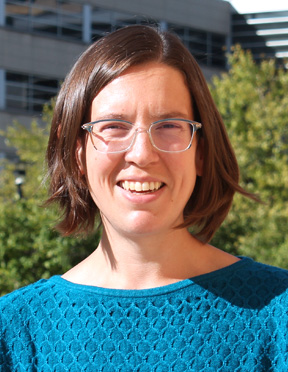
Heather Barkholtz, PhD
Assistant Professor, School of Pharmacy & Wisconsin State Laboratory of Hygiene
Dr. Heather Barkholtz is an Assistant Professor specializing in forensic toxicology and analytical chemistry, with a focus on cannabis and psychoactive substances. Their work includes developing biological assays for cannabinoid detection and human subjects impairment studies, such as investigating the effects of delta-8-THC and delta-9-THC on driving performance. They collaborate with researchers across disciplines to advance understanding of cannabis in public health, pharmacology, and policy.
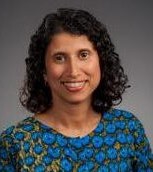
Ritu Bhatnagar, MD, MPH, FASAM, DFAPA
Clinical Associate Professor, UW School of Medicine and Public Health Department of Psychiatry
Associate Director of Psychiatric Services, University Health Services, UW-Madison
Ritu Bhatnagar, MD is a Clinical Associate Professor at the University of Wisconsin School of Medicine and Public Health Department of Psychiatry. She is Associate Director of Psychiatric Services at University Health Services. She is an active member of the Wisconsin Society of Addiction Medicine (WISAM), is the WISAM representative to the Council on Legislation for the Wisconsin Medical Society and serves on the Suicide Prevention and Harm Reduction Coalition, the Wisconsin Alcohol Policy Project and the State Council for Alcohol and Other Drug Abuse. After a decade in a specialty addiction treatment setting, she is supporting educational initiatives related to the treatment of substance use disorders. She seeks to develop novel community collaborations to address the impact of substance use and mental health disorders.
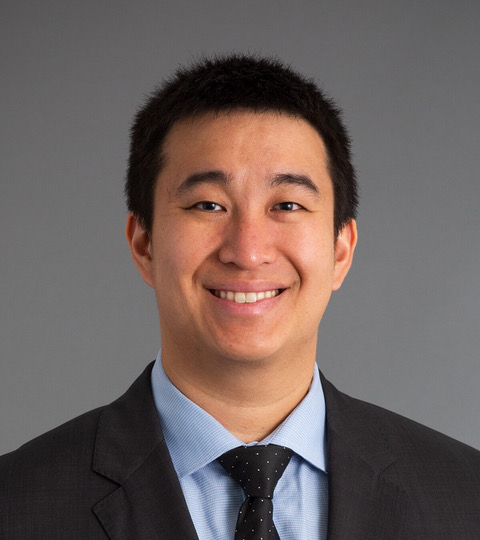
Micahel Chen, MD, FAAFP
Assistant Professor (CHS), Department of Family Medicine and Community Health
Jan and Kathryn Ver Hagen Professor of Translational Research in Medicine
UW School of Medicine and Public Health
Michael Chen, MD, FAAFP is a board-certified family physician who received his medical degree from the University of Utah. He helped create the medical cannabis referral program at the University of Utah and has served on the Utah Medical Cannabis Compassionate Use Board in addition to the Utah Physician Licensing Board and Utah Health Advisory Council. He previously served as Medical Director of Population Health for the University of Utah Community Physician Group and now serves as Medical Director, Primary Care Expansion Services for UW Health. He is the current Past President of the Utah Academy of Family Physicians and is starting a term on the Board of the Wisconsin Academy of Family Physicians.

Hasmeena Kathuria, MD, ATSF
Director, Center for Tobacco Research and Intervention
Jan and Kathryn Ver Hagen Professor of Translational Research in Medicine
Member, Cancer Prevention and Control Program, UW Carbone Cancer Center
UW School of Medicine and Public Health
Hasmeena Kathuria, MD is the Director of the UW Center for Tobacco Research and Intervention and the Jan and Kathryn Ver Hagen Professor of Translational Research in Medicine. Dr. Kathuria is a pulmonary, critical care, and sleep medicine physician whose research, advocacy, and clinical efforts are focused on clinical care and policy regarding tobacco dependence in communities disproportionately affected by tobacco use. Kathuria chairs the American Thoracic Society’s (ATS) Tobacco Action Committee and Tobacco Control Taskforce. Dr. Kathuria is interested in research to better understand the impact of inhaled tobacco and cannabis co-use on health outcomes and tobacco cessation to guide decisions for patients, clinicians, and policymakers.
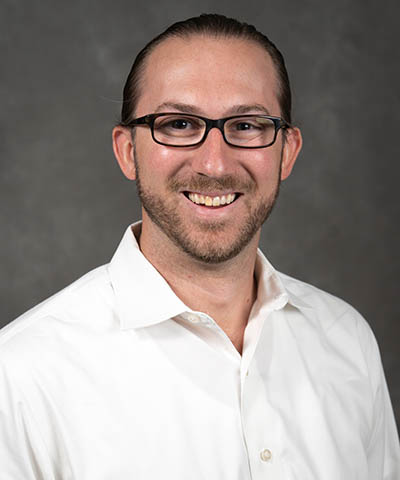
Jesse Kaye, PhD
Scientist, Center for Tobacco Research and Intervention
Member, Cancer Prevention and Control Program, UW Carbone Cancer Center
UW School of Medicine and Public Health
Dr. Jesse Kaye is a clinical psychologist whose research on tobacco, cannabis, and other substance use disorders focuses on processes related to risk, etiology, and treatment of addictive disorders. The overarching goal of this research has been to develop more effective smoking treatments for populations disproportionately affected by tobacco use such as those with mental illness, heavy alcohol or cannabis use, socioeconomic disadvantage, incarceration, or cancer. Dr. Kaye has a particular interest in research on the co-use of tobacco and cannabis as it relates to addiction mechanisms and severity, health effects, and treatment engagement and outcomes.
Panel 2: Business & Design
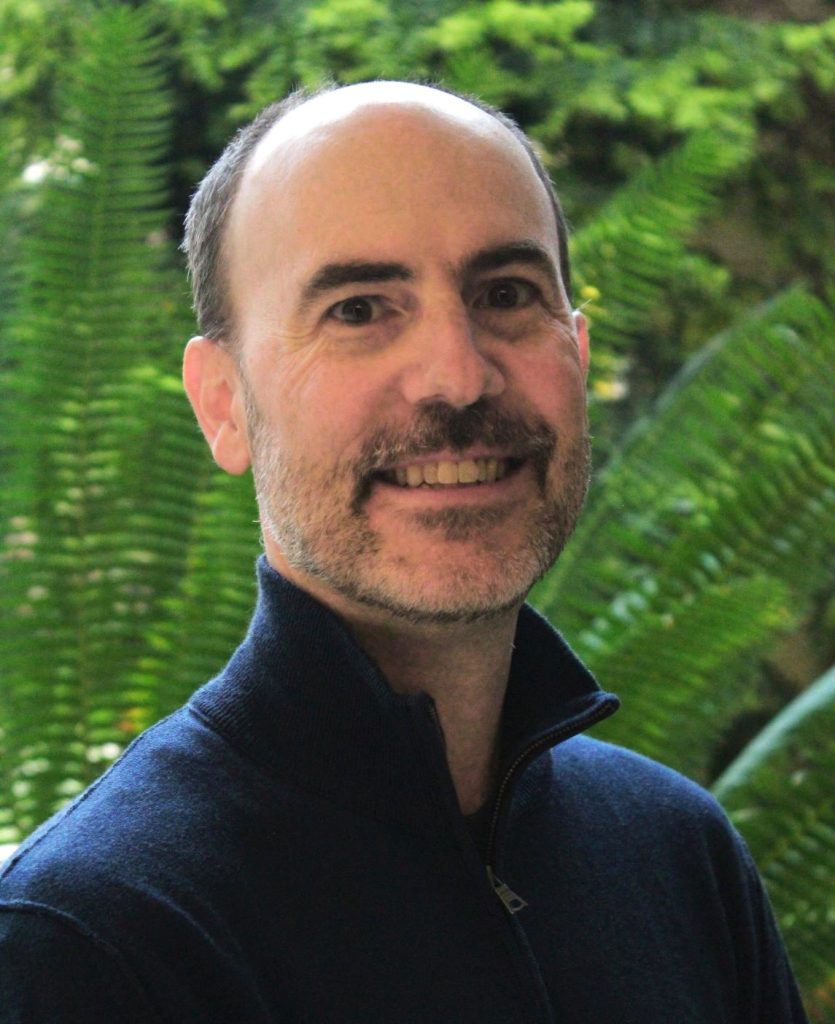
Abram Becker
Interim Director at Discovery to Product
Abram Becker is Interim Director of Discovery to Product (D2P) at UW–Madison, guiding academic innovators to transform research into impactful solutions. With over 20 years of strategic and operational experience across leading health, information, and life science tech firms and startups, Abram brings a unique perspective to the intersection of business, design, and innovation. He holds an MBA with a certificate in Health Sector Management, an MS in Industrial Engineering Research, and is pursuing a PhD at the Institute for Clinical and Translational Research, with research aimed at using human-centered design, systems engineering, implementation science and entrepreneurial methods to tackle complex challenges and drive real-world impact.
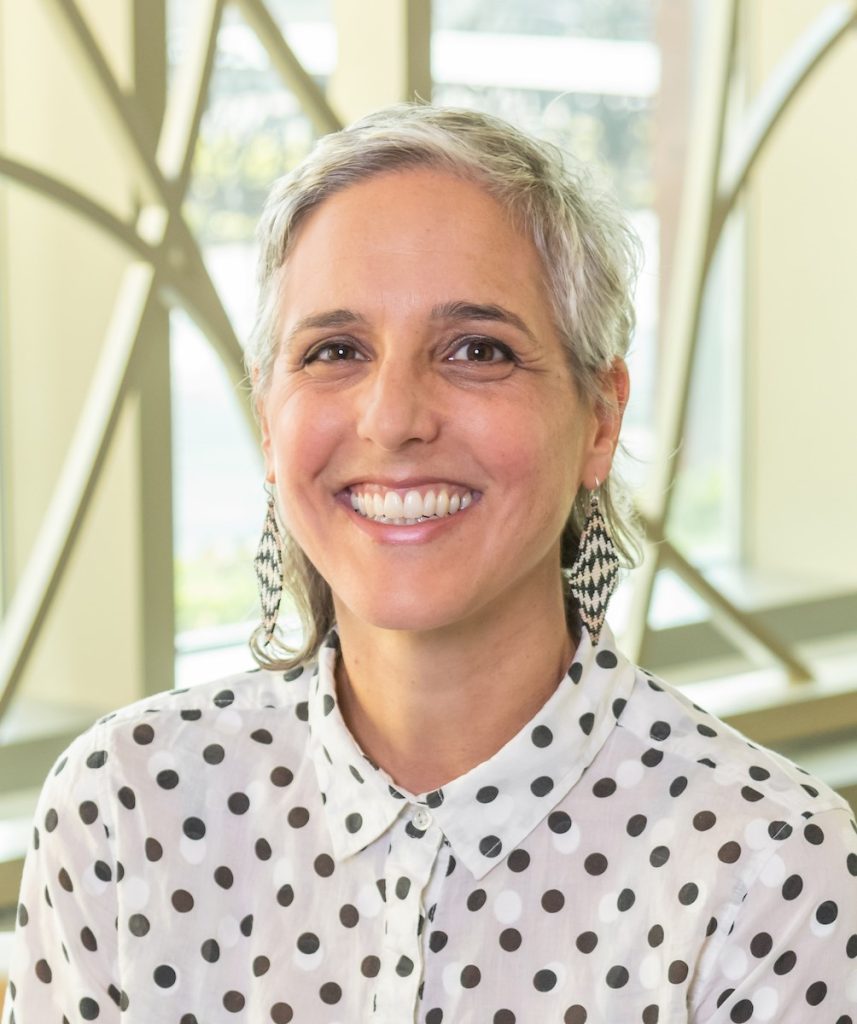
Marianne Fairbanks
Audrey Rothermel Bascom Professor
Associate Professor of Design Studies
Kohl’s Center Innovation Faculty Fellow
Founder of Hello Loom
Marianne Fairbanks is a visual artist and Associate Professor of Design Studies at the University of Wisconsin-Madison. She holds a BFA in Fibers from the University of Michigan and an MFA in Fibers and Material Studies from the School of the Art Institute of Chicago. Her artistic practice is deeply rooted in textiles, weaving, material exploration and technology. In 2021 she founded the Hemp Lab to develop hands-on strategies for how to use this locally grown, carbon sequestering crop as a raw material that holds sustainable solutions for a better social, ecological, economic and cultural future.
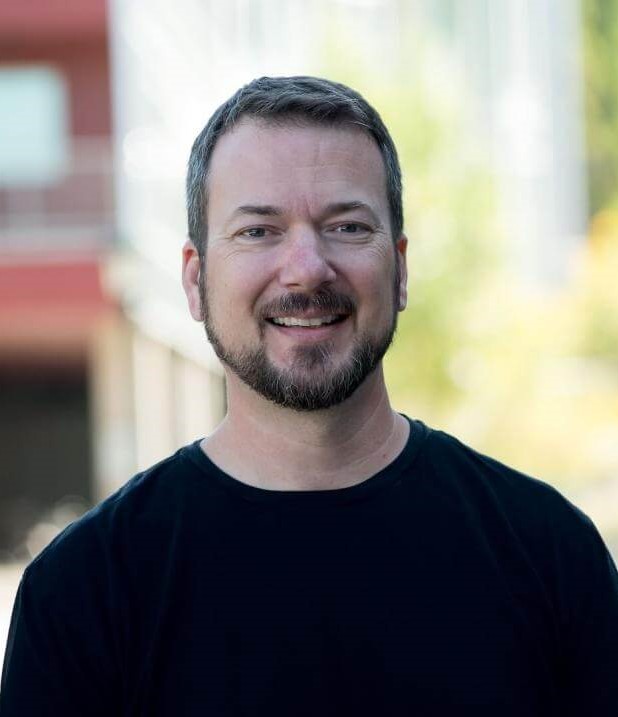
Steven Kostell
Associate Professor of Design, University of Vermont
Steven Kostell is an Associate Professor of Design and a creative practitioner who employs systems thinking as a critical framework, focusing on sustainability and regenerative materials. He actively seeks opportunities for collaborative research and leads The Biofiber Lab, a transdisciplinary research lab at the University of Vermont. The Biofiber Lab integrates arts-based social practice as a core research methodology, exploring materials and examining cultural craft traditions inspired by the ethos of maker culture and rooted in the tradition of hand-papermaking. This approach shapes his scholarly perspective and creative collaborations while emphasizing community building, knowledge sharing, and sustainable practices. The Biofiber Lab supports several USDA-funded projects that investigate hemp fiber production, processing, and bio-material prototyping.
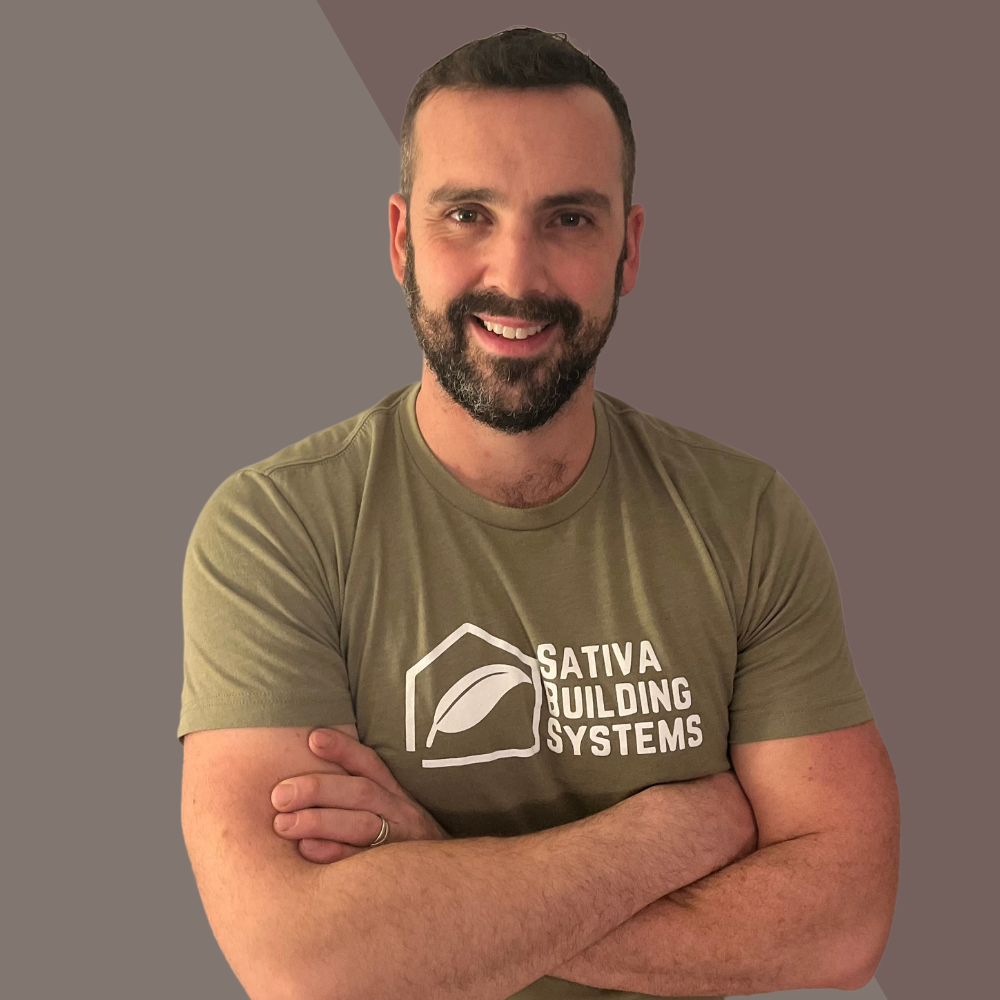
Zach Popp
Founder and President of Sativa Building Systems Inc.
Zach Popp is the Founder and President of Sativa Building Systems Inc., where he leads the development and manufacturing of innovative sustainable building materials. He is the patent holder of the Z Panel, a precast hempcrete block panel designed for wall construction, currently produced at the company’s facility in Wittenberg, Wisconsin. Sativa Building Systems is recognized as the first U.S. company to complete a 50-state code compliance report for a hempcrete product, establishing a key milestone for the industry. The company has also secured over $2 million in research and development funding from the U.S. Army to support the development of hemp-mycelium building materials. Zach holds an MBA and has a professional background spanning construction, health and fitness, and higher education. He founded Sativa Building Systems in 2018 with a focus on delivering safe, high-quality, and environmentally responsible building solutions to the market.
Panel 3: Agriculture
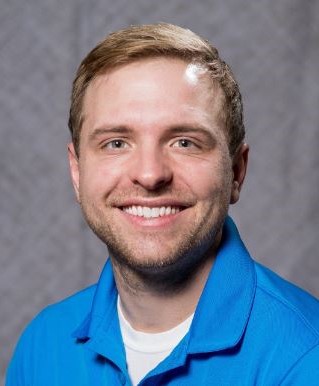
Phillip Alberti
Research Program Manager, Department of Plant and Agroecosystem Sciences
College of Agriculture and Life Sciences
Phillip Alberti is a Research Program Manager for the Ellison lab at the University of Wisconsin-Madison, working to coordinate lab, field, and greenhouse research activities. Phillip specializes in emerging crop production research and outreach, serving as the project lead for the Midwestern Hemp Database and associated research projects. He earned a BS in Molecular Biology and Botany from the University of Wisconsin-Madison and a MS degree in Agronomy from South Dakota State University.
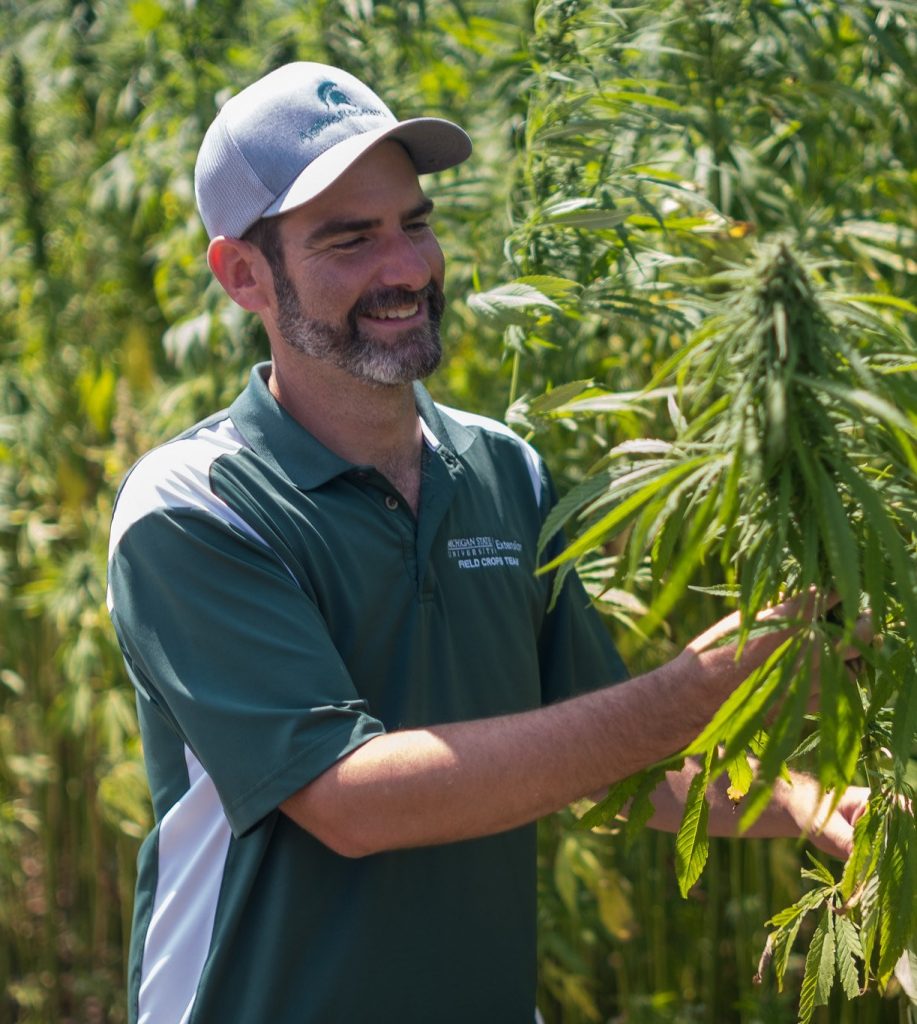
James DeDecker, PhD
Director, Michigan State University Upper Peninsula Research and Extension Center
Dr. James DeDecker is Director of the Upper Peninsula Research and Extension Center and an Extension Specialist in Community Food Systems at Michigan State University. He has conducted hemp variety, agronomy and pest management research since 2019, currently co-leading the Midwestern Hemp Research Collaborative project and representing MSU on the S-1084 multi-state Hatch project for hemp. James recently presented findings of these projects at two international hemp conferences that were the first of their kind in Kenya and Pakistan.
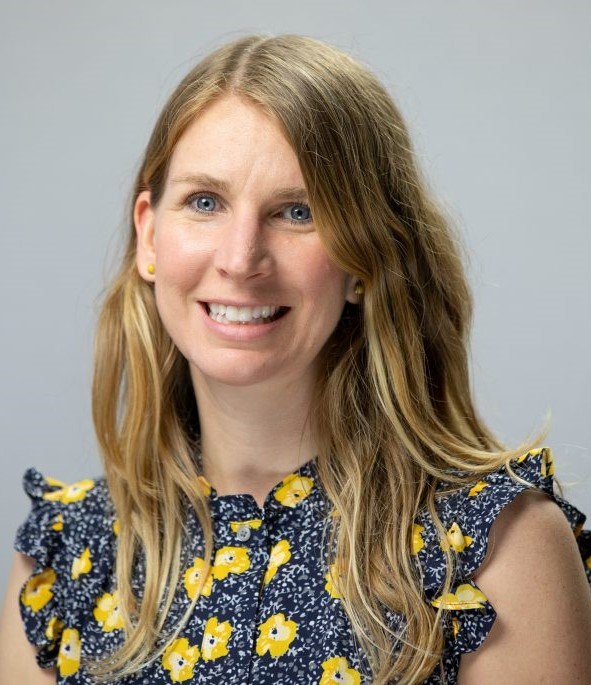
Shelby Ellison, PhD
Assistant Professor, Department of Plant and Agroecosystem Sciences
College of Agriculture and Life Sciences
Dr. Shelby Ellison is an Assistant Professor in the Department of Plant and Agroecosystem Sciences at the University of Wisconsin – Madison. Her research interests include preserving, characterizing, and utilizing genetic diversity in alternative crops to meet the needs of regional farmers. She is also interested in how human interactions with plants, through domestication and breeding, have altered the plant genome and how we can use these selection signatures to trace domestication and improvement throughout history.
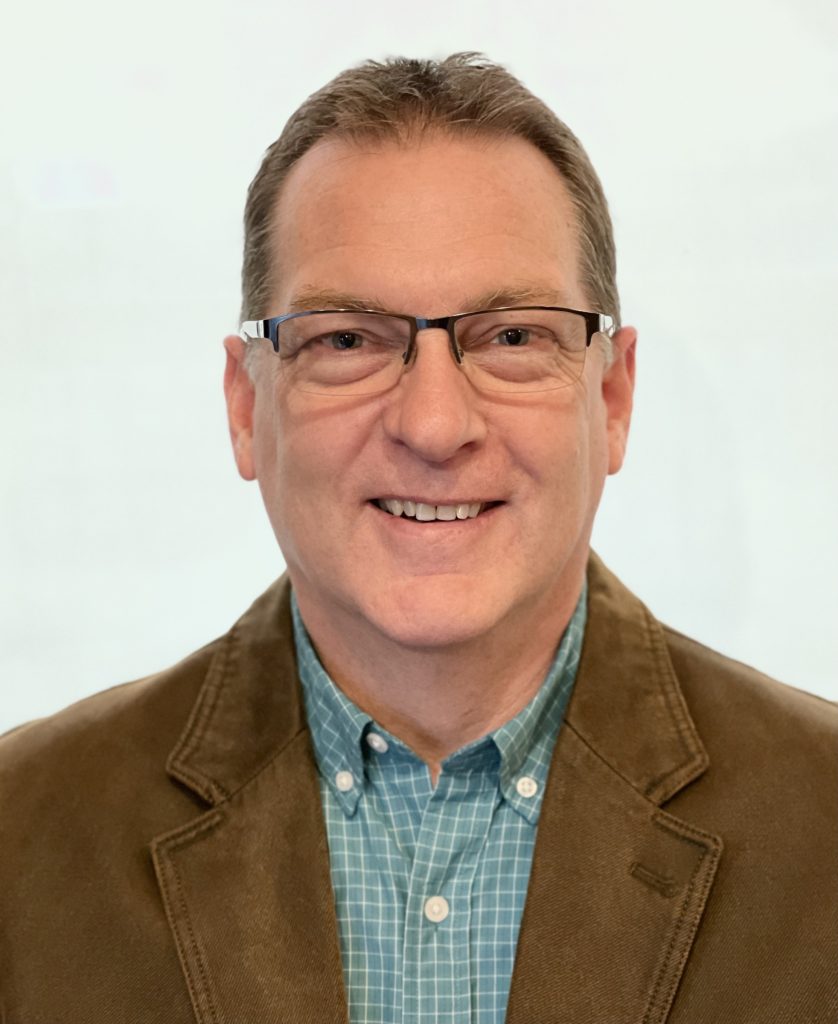
Mike Petersen
Scientist II, Wisconsin Crop Innovation Center
Mike Petersen obtained his BS in Bacteriology at the University of Wisconsin-Madison. With over 35 years of experience and 5 years as the Associate Director of the Wisconsin Crop Innovation Center (WCIC), Mike has become recognized as a leading researcher and mentor within the plant biotech space. Mike stepped back from his Associate Director role to focus part time on improving his recent patent around cannabis transformation and creating new traits for improved yield, fiber, cannabinoids, terpenes, and other key interests for the UW and our nation’s agricultural industry.
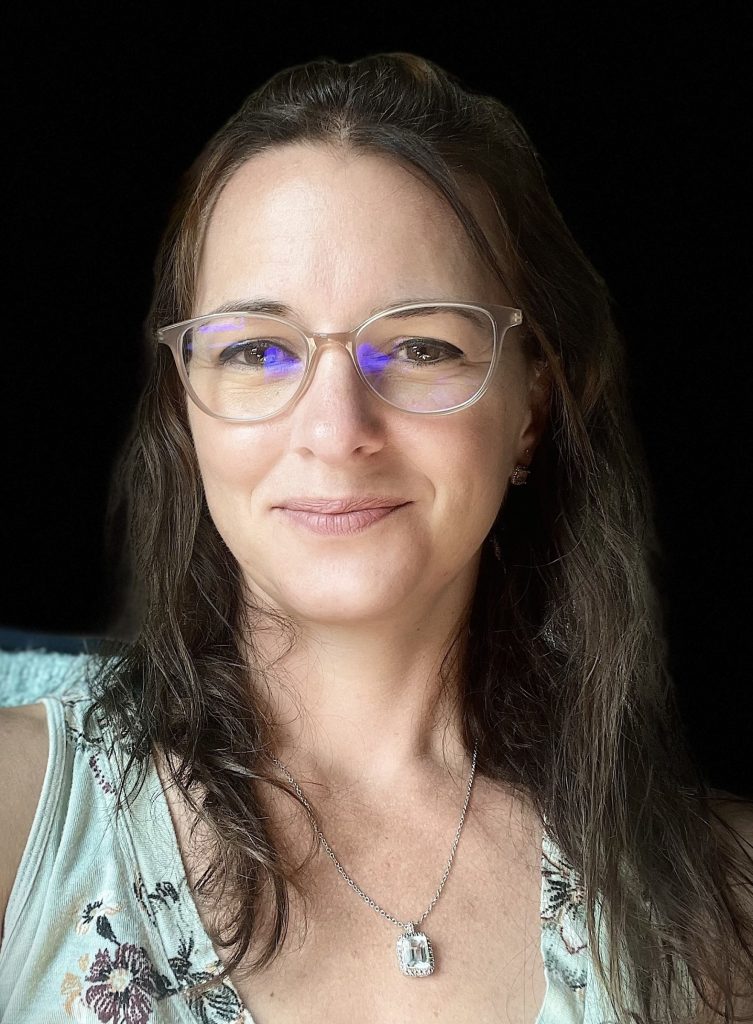
Shannon Riha, PhD
Associate Professor, Department of Chemistry and Biochemistry
University of Wisconsin – Stevens Point
Dr. Shannon Riha is an Associate Professor in the Department of Chemistry and Biochemistry at the University of Wisconsin – Stevens Point. Her research interests center around the chemical analysis of phytochemicals and toxins found in hemp and other Wisconsin crops. Her current research aims to address whether and to what extent hemp and alfalfa can phytoremediate per- and polyfluoroalkyl substances (PFAS) from soils, characterize PFAS distribution in plant tissue, and identify similarities and differences in between hemp and alfalfa for PFAS phytoremediation.
Panel 4: Policy & Regulatory
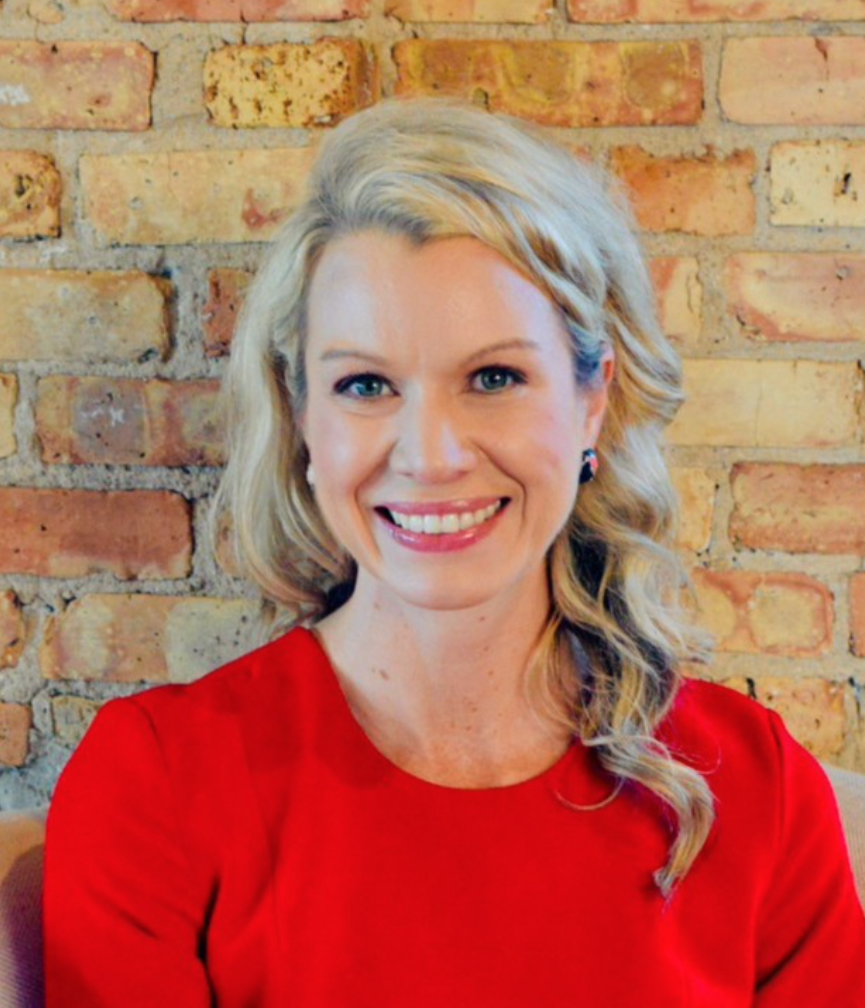
Calyn Ostrowski
Associate Director, Strategic Partnerships & Development
UW-Madison’s Global Health Institute
Calyn Ostrowski is the associate director of strategic partnerships and development for UW-Madison’s Global Health Institute (GHI) where she leads transdisciplinary partnerships to advance the interconnected issues of One Health and establish GHI’s One Health Centers in Africa, Asia, and Latin America. In her role, Calyn is responsible for GHI’s administration, operations, communications and managing a unique portfolio of academic, philanthropic, government and industry partnerships. In 2022, Calyn led GHI’s research investigating industrial hemp’s versatility to advance the United Nations’ 17 Sustainable Development Goals.
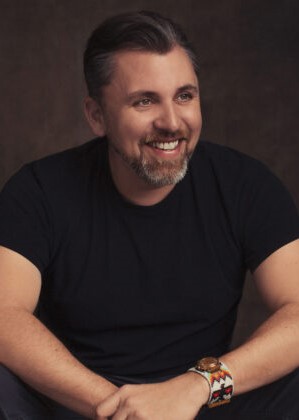
Rob Pero
Founder, CEO, and Creative Director, Perodigm
Founder, Indigenous Business Group
Founder, Canndigenous
Founder, Ripley Green Apothecary
Founder, Indigenous Cannabis Industry Association
Rob Pero is an entrepreneur, visionary creative director, and advocate dedicated to creating economic opportunities for Indigneous communities. With an innovative entrepreneurial spirit, Rob is the founder, CEO, and creative director of media group Perodigm, where he produces and directs award-winning films, guides the building and execution of strategic marketing campaigns, and offers Indigenous-focused diversity, equity, and inclusion consulting for organizations nationwide. He is a founder of the Indigneous Business Group, a nonprofit supporting Indigenous-led businesses and economic development in Indian country. Rob is also a passionate advocate for the interests of Indigneous communities in cannabis. He is the founder of Canndigenous, the first independent Indigenous-owned hemp company in Wisconsin, and Ripley Green apothecary, as well as the founder of a leading national cannabis advocacy organization, the Indigenous Cannabis Industry Association.
Rob is a member of the Bad River Band of the Lake Superior Tribe of Chippewa Indians and is committed to honoring his Indigenous heritage and Ojibwe roots. Rob values family, support for community, respect for the natural world, and a commitment to doing everything, as the Ojibwe say, “in a good way”.
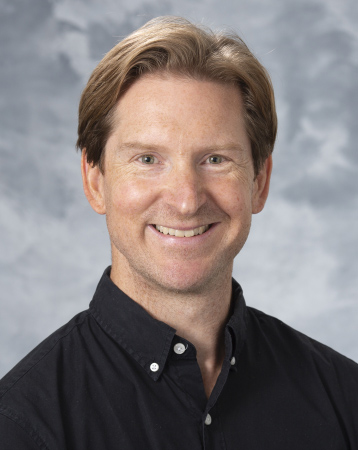
Lucas Richert, PhD
Professor and George Urdang Chair in the History of Pharmacy
UW-Madison School of Pharmacy
Dr. Lucas Richert is a historian of medicine and pharmacy, who focuses on legal and illegal drugs, drug science and technology, alternative therapies, and mental health. He is the author of three monographs and one anthology: A Prescription for Scandal, Strange Trips, Break On Through, and Cannabis: Global Histories. These publications all emphasize the evolving nature of health knowledges and logics over time. In 2019, Richert took up the George Urdang Chair in the History of Pharmacy within the UW-Madison School of Pharmacy.
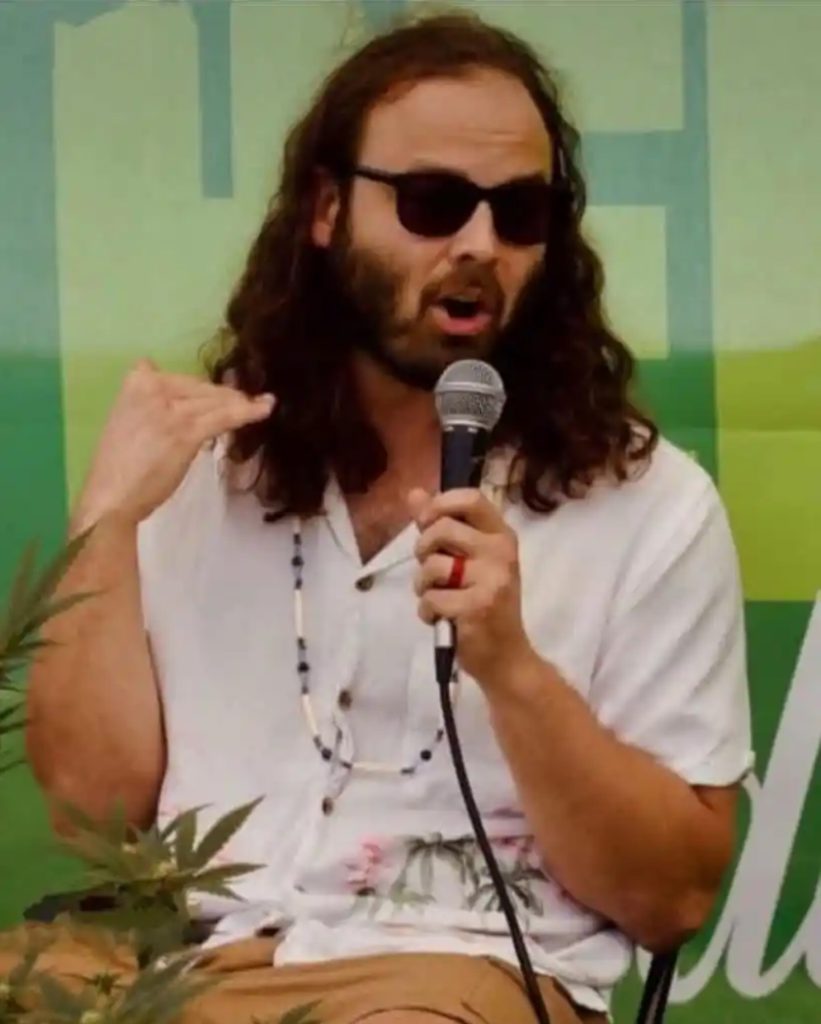
Phillip Scott
Co-owner, Crone Apothecary
Founder and President, Wisconsin Hemp Farmers and Manufacturers Association
Farmer, Badger Hemp Corridor
Phillip Scott leads Wisconsin Hemp Farmers and Manufacturers, a trade group for the hemp industry, and is co-owner of Crone Apothecary in Madison, where he sells products made from his own THCA-rich flower that he grows under the brand Badger Hemp Corridor.
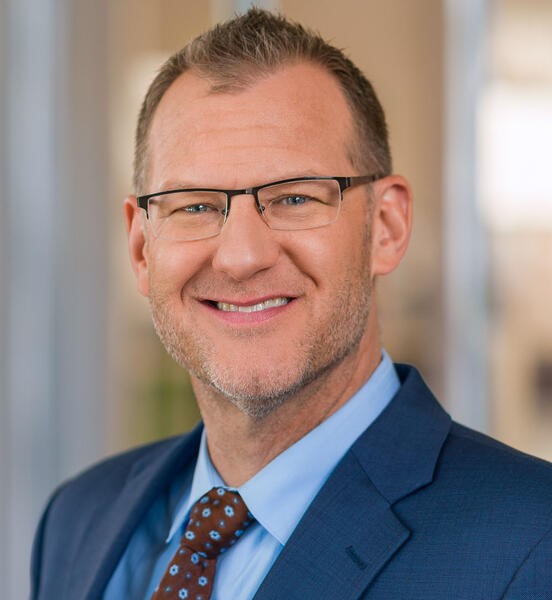
Jason Tarasek
Partner, Vicente LLP
Jason Tarasek is a partner at Vicente LLP and manages the firm’s Minnesota office. He assists clients throughout the Upper Midwest. With more than 20 years of legal experience as a transactional attorney and litigator, he has handled hundreds of civil litigation matters and first-chaired several trials in state and federal courts. Previously, Jason served as Minnesota Political Director for the Marijuana Policy Project, where he helped orchestrate the state’s first-ever legislative hearing on a cannabis legalization bill in 2019. He is a founding member of Sota Cann, Minnesota’s leading trade organization for cannabis businesses. He is also a former board member of the Cannabis Industry Association of South Dakota. Jason is a frequent speaker on legal issues related to cannabis and has served as an adjunct professor at Mitchell Hamline Law School, where he co-taught a seminar titled “Marijuana and the Law.”
Jason received his J.D. from the University of California – Hastings College of the Law, and his B.A. from the University of Wisconsin – Madison. He is admitted to the state bar associations in Minnesota, Wisconsin, South Dakota, and North Dakota.




